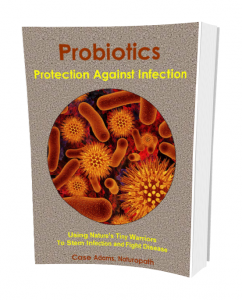Bacteria Implicated in Colon and Rectal Cancers
The mystery of what causes colon and rectal cancers – also called colorectal cancers – has been pretty much solved. Turns out that colorectal cancers are caused by the overgrowth of certain types of bacteria within the gut. Surprised?
The overgrowth of bad bacteria in the gut have now been linked to a number of conditions around the body. This includes cancer as well as cardiovascular disease, liver disease and many other conditions. Finding that a particular type of bacteria is linked to colon cancer is not such a stretch after all. But now there is science to back up this claim.
In this article
Fusobacterium linked to colorectal cancer
Two recent studies by independent research groups have found that colorectal tumors contain significantly high concentrations of Fusobacterium, an invasive anaerobic bacterium known for causing inflammatory issues around the body.
The first study, by researchers from the BC Cancer Agency and the Michael Smith Genome Sciences Center in Vancouver, Canada, initially screened 11 colorectal patients together with 11 matched control subjects, and found high levels of Fusobacterium nucleatum. Next the researchers, led by Robert Holt, PhD, validated their results using 88 additional specimens of colorectal cancer tumors. Their testing utilized RNA sequencing techniques to illustrate active (living) bacteria that were replicating DNA.
The second study, this one by researchers from Massachusetts Institute of Technology (MIT), was led by Matthew Meyerson, MD, PhD, also from the Dana-Farber Cancer Institute and Harvard Medical School. This study utilized DNA sequencing on a total of 95 specimens, again finding that Fusobacteria were active and significantly populating colon cancer tumors. They also visualized the the Fusobacteria activity within the tumors, and were able to gain some understanding of the alterations that these bacteria were having upon the gut.
Fusobacterium also linked to other conditions
Fusobacteria have been previously associated with a number of intestinal and tissue disorders, including periodontitis (gum disease), pericarditis (heart tissue disease), thrombophlebitis (vein inflammation), and inflammatory bowel disease (IBS). IBS is also known as a high-risk factor and potential precursor for colorectal cancer.
Dr. Meyerson discussed the possible relationship between the bacterium and colon cancer. “It may be that the bacterium is essential for cancer growth, or that cancer simply provides a hospitable environment for the bacterium. Further research is needed to see what the link is,” he said.
Both research teams were surprised to find such high populations of the Fusobacteria among the tumors. Fusobacterium nucleatum is largely found among bacteria populations in the mouth. For this reason, the researchers noted that this finding was “largely unexpected, given that it is generally regarded as an oral pathogen.”
Foods with flavanols help prevent colon cancer, and legumes also help prevent colon cancer according to other research.
Learn how to combat Fusobacteria with probiotics:
References
Kostic AD, Gevers D, Pedamallu CS, Michaud M, Duke F, Earl AM, Ojesina AI, Jung J, Bass AJ, Tabernero J, Baselga J, Liu C, Shivdasani RA, Ogino S, Birren BW, Huttenhower C, Garrett WS, Meyerson M. Genomic analysis identifies association of Fusobacterium with colorectal carcinoma. Genome Res. 2011 Oct 18.
Castellarin M, Warren RL, Freeman JD, Dreolini L, Krzywinski M, Strauss J, Barnes R, Watson P, Allen-Vercoe E, Moore RA, Holt RA. Fusobacterium nucleatum prevalent in human colorectal carcinoma. Genome Res. 2011 Oct 18.
















